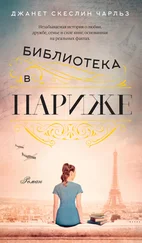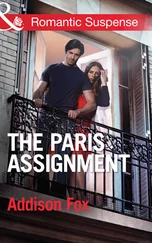She wasn’t like the other ladies in Froid. They were plump like wrens, and their lumpy sweaters and boring shoes came in downy grays. The other ladies wore curlers to the grocery store, but Mrs. Gustafson donned her Sunday best—a pleated skirt and high heels—just to take out the trash. A red belt showed off her waist. Always. She wore bright lipstick, even in church. “That one certainly thinks highly of herself,” the other ladies said as she strode to her pew near the front, eyes hidden by her cloche hat. No one else wore a hat. And most parishioners sat in the back, not wanting to call themselves to God’s attention. Or the priest’s.
That morning, Iron-Collar Maloney asked us to pray for the 269 passengers of a Boeing 747 that had been shot down from the sky by Soviet K-8 missiles. On television, President Reagan had told us about the attack on the plane flying from Anchorage to Seoul. As the church bell pealed, his words rang in my ears: “Grief, shock, anger… the Soviet Union violated every concept of human rights… we shouldn’t be surprised by such inhuman brutality…” The Russians would murder anyone, he seemed to be saying, including children.
Even in Montana, the Cold War made us shiver. Uncle Walt, who worked at Malmstrom Air Force Base, said a thousand Minuteman missiles had been planted like potatoes across our plains. Under round cement crypts, the nuclear heads waited patiently for kingdom come. He bragged that the Minutemen were more powerful than the bombs that had destroyed Hiroshima. He said that missiles seek missiles, so Soviet weapons would bypass Washington and aim for us. In response, our Minutemen would soar, hitting Moscow in less time than it took me to get ready for school.
After Mass, the congregation lumbered across the street to the hall for coffee, doughnuts, and the fellowship of gossip. Mom and I stood in line for pastries; at the pulpit of the percolator, Dad and the other men gathered around Mr. Ivers, the president of the bank. Dad worked six days a week in hopes of becoming his vice president.
“Soviets won’t let anyone search for the bodies. Godless bastards.”
“When Kennedy was president, defense spending was seventy percent more than it is today.”
“We’re sitting ducks.”
I listened without listening—in the endless wariness of the Cold War, these grim conversations were the soundtrack of our Sundays. Busy piling doughnut holes on my plate, it took me a minute to realize that Mom was wheezing. Usually when she had a spell, she had a reason: “The farmers are harvesting, and the dust in the air brings on my asthma,” or “Father Maloney waves that incense around like he’s trying to fumigate.” But this time she clasped my upper arm, offering none. I steered her toward the closest table, to seats next to Mrs. Gustafson. Mom sank onto the metal chair, pulling me down beside her.
I tried to catch Dad’s attention.
“I’m fine. Don’t make a fuss,” Mom said in a tone that meant business.
“Tragic, what happened to those people in the plane,” Mrs. Ivers said from across the table.
“That’s why I stay put,” Mrs. Murdoch said. “Gallivanting about gets you in trouble.”
“Lots of innocent people died,” I said. “President Reagan said a congressman was killed.”
“One less freeloader.” Mrs. Murdoch shoved the last of her doughnut between her brown teeth.
“That’s a rotten thing to say. Folks have a right to take a plane without getting shot down,” I said.
Mrs. Gustafson’s eyes met mine. She nodded, like what I thought mattered. Though I’d made a hobby of observing her, this was the first time she’d noticed me.
“It’s brave of you to take a stand,” she said.
I shrugged. “People shouldn’t be mean.”
“I couldn’t agree more,” she said.
Before I could respond, Mr. Ivers bellowed, “The Cold War’s gone on for nearly forty years. We’ll never win.”
Heads bobbed in agreement.
“They’re cold-blooded killers,” he continued.
“Have you ever met a Russian?” Mrs. Gustafson asked him. “Worked with one? Well, I have, and can tell you they’re no different than you or me.”
The whole hall went quiet. Where had she met the enemy, and how had she “worked” with one?
In Froid, we knew everything about everyone. We knew who drank too much and why, we knew who cheated on their taxes and who cheated on their wives, we knew who was living in sin with some man in Minot. The only secret was Mrs. Gustafson. No one knew what her parents’ names were, or what her father did for a living. No one knew how she met Buck Gustafson during the war, or how she convinced him to jilt his high-school sweetheart and marry her instead. Rumors swirled around her but didn’t stick. There was sorrow in her eyes, but was it loss or regret? And after living in Paris, how could she settle for this dull dot on the plains?
I WAS A “front row, raise your hand” student. Mary Louise sat behind me and doodled on the desk. Today at the blackboard, Miss Hanson tried her best to interest our seventh-grade class in Ivanhoe ; Mary Louise muttered, “Ivan-no.” Across the aisle, Robby’s tanned fingers curved around a pencil. His hair—brown like mine—was feathered. He could already drive, since he had to help his folks haul grain. He brought the pencil to his mouth, the pink eraser brushing his bottom lip. I could stare at the corner of his mouth forever.
French kiss. French toast. French fries. All the good things were French. For all I knew, French green beans tasted better than American ones. French songs had to be better than the country music that played on the only radio station in town. “My life done broke down when that cud-smackin’ cow left me for a younger bull.” The French probably knew more about love, too.
I wanted to sail down the runway of an airport, of a fashion show. I wanted to perform on Broadway, to peek behind the Iron Curtain. I wanted to know how French words would feel in my mouth. Only one person I knew had experienced the world beyond Froid—Mrs. Gustafson.
Though we were neighbors, it was like she lived light-years away. Each Halloween, Mom had warned, “The War Bride’s porch light is off. That means she doesn’t want you kids banging on her door.” When Mary Louise and I sold Girl Scout Cookies, her mom said, “The old broad’s on a budget, so don’t hit her up.”
My encounter with Mrs. Gustafson made me bold. All I needed was the right school assignment, and I could interview her.
As expected, Miss H assigned a book report on Ivanhoe . After class, I approached her desk and asked if I could write about a country instead.
“Just this once,” she said. “I look forward to reading your report on France.”
I was so distracted with my plan that when I went to the bathroom, I forgot to check under the stalls and lock the main door. Sure enough, when I finished, Tiffany Ivers and her herd skulked near the sinks, where she teased her wheat-gold hair in front of the mirror.
“The flush didn’t work,” she said. “Here comes a turd.”
Hardly sophisticated but when I studied my reflection, all I saw was turd-brown hair. I remained near the stalls, knowing that if I washed my hands, Tiffany would shove me into the faucet and I’d get drenched. If I didn’t, they’d tell the school. They did that to Maisie—no one would sit by “Pee Hands” for a month. Arms crossed, the bathroom quartet waited.
The hinges of the door squeaked, and Miss H peeked in. “Are you in here again, Tiffany? You must have bladder problems.”
The girls strode out, eyes on me as if to say this isn’t over . That I knew.
Mom, the guerrilla optimist, would tell me to look on the bright side. At least old man Ivers had just one spawn. And it was Friday.
Читать дальше
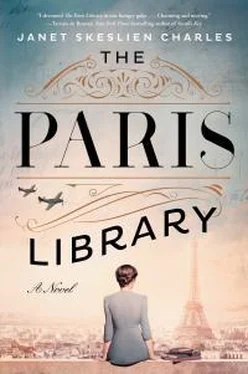
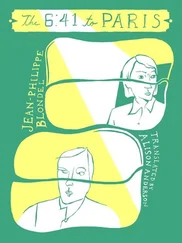
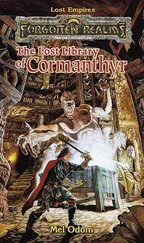
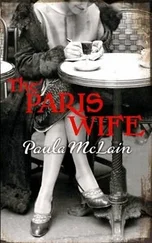


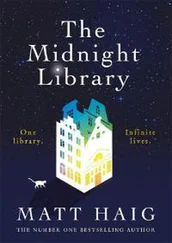
![Джанет Скеслин Чарльз - Библиотека в Париже [litres]](/books/391555/dzhanet-skeslin-charlz-biblioteka-v-parizhe-litres-thumb.webp)
